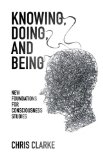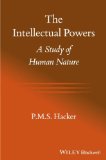October 9, 2013

Identity And Difference: John Locke And The Invention Of Consciousness by Etienne Balibar (Verso, 2013)
(kindle ed.), (amazon.co.uk)
Book description from the publisher:
John Locke’s foundational place in the history of British empiricism and liberal political thought is well established. So, in what sense can Locke be considered a modern European philosopher? Identity and Difference argues for reassessing this canonical figure. Closely examining the “treatise on identity” added to the second edition of An Essay Concerning Human Understanding, Étienne Balibar demonstrates Locke’s role in the formation of two concepts central to the metaphysics of the subject—consciousness and the self—and the complex philosophical, legal, moral and political nature of his terms.
With an accompanying essay by Stella Sandford, situating Balibar’s reading of Locke in the history of the reception of the Essay and within Balibar’s other writings on “the subject,” Identity and Difference rethinks a crucial moment in the history of Western philosophy.
Comments (0)
- consciousness,new books,self
October 7, 2013

The Mind’s Construction: The Ontology of Mind and Mental Action by Matthew Soteriou (Oxford University Press, 2013)
(amazon.co.uk)
Book description from the publisher:
Philosophers working on the ontology of mind have highlighted various distinctions that can be drawn between the ways in which different aspects of our minds fill time. For example, they note that whereas some elements of our mental lives obtain over time, others unfold over time, and some continue to occur throughout intervals of time. Matthew Soteriou explores ways in which such distinctions can be put to work in helping to inform philosophical accounts of both sensory and cognitive aspects of consciousness. Part One of The Mind’s Construction argues that work in the ontology of mind that focuses on distinctions of temporal character has much to contribute to philosophical accounts of the phenomenology of various elements of sensory consciousness–e.g. the phenomenology of perceptual experience, bodily sensation, and perceptual imagination. Part Two argues that these ontological considerations can inform our understanding of conscious thinking, and the form of self-conscious consciousness that we have as subjects capable of engaging in such activity, by helping to account for and explain the respect in which agency is exercised in conscious thinking. This in turn, it is argued, can illuminate the more general issue of the place and role of mental action in an account of the metaphysics of mind.
Google Books preview:
See also: Author’s webpage
Comments (0)
- consciousness,new books,philosophy of mind
October 5, 2013

Knowing, Being, and Doing: New Foundations for Consciousness Studies by Chris Clarke (Imprint Academic, 2013)
(amazon.co.uk)
Book description from the publisher:
Between 1965 and 2002 several key lines of research emerged which, taken together, can potentially revolutionise our understanding of the place of consciousness in the universe. Two of these are crucial: first, the analyses of human mental processes by Barnard, and independently by McGilchrist, revealing two separate elements, one rational and one based on relationships; and, second, research by several workers linking quantum theory to consciousness in much greater detail then hitherto. Both of these investigations use an alternative logical system in order to make sense of the quantum/consciousness area. In this book the author explains the close connections between these new ingredients – connections which until now have barely been noticed. Using these insights the author set out a new foundation for consciousness studies in which consciousness is integrated with physics while retaining its qualitatively different character. Finally the book discusses how this affects our everyday approach to ecology, religion, and spiritual practice.
Comments (0)
- consciousness,new books
September 30, 2013

Philosophy of Dreams by Christoph Turcke, Susan H. Gillespie (tr.) (Yale University Press, 2013)
(amazon.co.uk)
Book description from the publisher:
Why has humankind developed so differently from other animals? How and why did language, culture, religion, and the arts come into being? In this wide-ranging and ambitious essay, Christoph Türcke offers a new answer to these timeworn questions by scrutinizing the phenomenon of the dream, using it as a psychic fossil connecting us with our Stone Age ancestors. Provocatively, he argues that both civilization and mental processes are the results of a compulsion to repeat early traumas, one to which hallucination, imagination, mind, spirit, and God all developed in response.
Until the beginning of the modern era, repetition was synonymous with de-escalation and calming down. Then, automatic machinery gave rise to a new type of repetition, whose effects are permanent alarm and distraction. The new global forces of distraction, Türcke argues, are producing a specific kind of stress that breaks down the barriers between dreams and waking consciousness. Türcke’s essay ends with a sobering indictment of this psychic deregulation and the social and economic deregulations that have accompanied it.
Google Books preview:
Comments (0)
- consciousness,culture
September 7, 2013

The Intellectual Powers: A Study of Human Nature by P.M.S. Hacker (Wiley-Blackwell, 2013)
(amazon.co.uk)
Book description from the publisher:
The Intellectual Powers is a philosophical investigation into the cognitive and cogitative powers of mankind. It develops a connective analysis of our powers of consciousness, intentionality, mastery of language, knowledge, belief, certainty, sensation, perception, memory, thought, and imagination, by one of Britain’s leading philosophers. It is an essential guide and handbook for philosophers, psychologists, and cognitive neuroscientists.
- The culmination of 45 years of reflection on the philosophy of mind, epistemology, and the nature of the human person
- No other book in epistemology or philosophy of psychology provides such extensive overviews of consciousness, self-consciousness, intentionality, mastery of a language, knowledge, belief, memory, sensation and perception, thought and imagination
- Illustrated with tables, tree-diagrams, and charts to provide overviews of the conceptual relationships disclosed by analysis
- Written by one of Britain’s best philosophical minds
- A sequel to Hacker’s Human Nature: The Categorial Framework
- An essential guide and handbook for all who are working in philosophy of mind, epistemology, psychology, cognitive science, and cognitive neuroscience
See also: Author website
Google Books preview:
Comments (0)
- cognitive science,consciousness,new books,philosophy of mind







